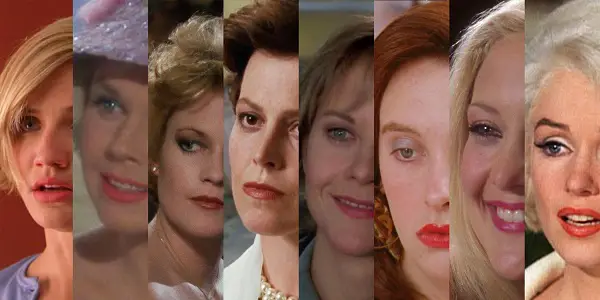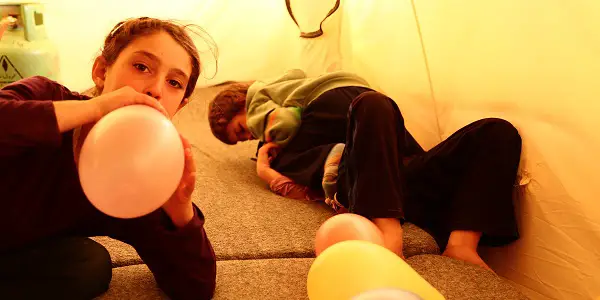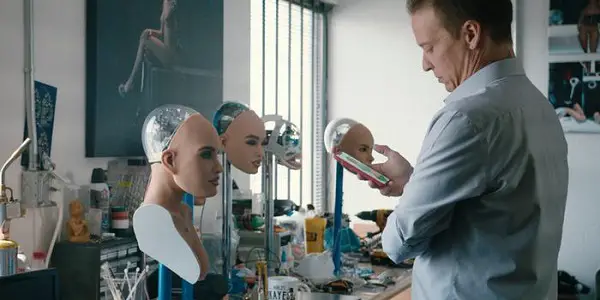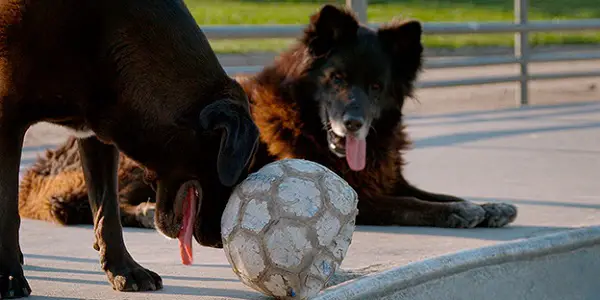Sheffield Doc/Fest Part 3: Five Gems From The Doc/Player

Musanna Ahmed is a freelance film critic writing for Film…
As is the custom of many major film festivals, Sheffield Doc/Fest provides Delegate Pass holders with an opportunity to access over 100+ films on the Doc/Player, a digitised film library which includes a selection from the Doc/Fest film programme and a number of other new documentaries on a range of global subjects. It’s available for six weeks after the end of the festival, which gave me ample opportunity to view many features and cull my favourites for review. Here are five wonderful films that should be on your radar.
Romantic Comedy (Elizabeth Sankey)
Elizabeth Sankey provides an intelligent and riveting commentary on the history of American rom-coms (with reference to relevant British ones) in the aptly titled Romantic Comedy, a piercing analysis of the genre’s codes and conventions and how they’ve evolved over the past century. It begins from a personal place. Sankey grew up with romantic comedies, at the time when Julia Roberts was the dominant leading lady. She was obsessed with the films and says they influenced her own behaviour when it came to relationships.
Her expectations were moulded by the scenarios those movies presented – you know the ones, kissing in the rain, running through the airport, stalking, etc – and the types of people that inhabited them. By living under the skin of the rom-com for her whole life, Sankey is perhaps the most qualified person to make this documentary.

Accompanying her narration is a great selection of off-screen contributors, composed of quality film writers, actors and filmmakers including The Guardian’s Simran Hans, The End of the F***king World’s Jessica Barden and filmmaker Charlie Lyne.
Their incisive critiques – a reassessment of While You Were Sleeping as a horror movie is a treat – are accompanied by winsome original songs composed by her band Summer Camp that fill us with the same endearment that these movies generally serve to provide, though I’m uncertain if that’s the effect this documentary should be aiming for considering it’s about the problematics of the genre.
This is a vast and detailed film that covers all aspects, most interesting are: the portrayals of gender roles (the difference between women in the workplace in the 30’s and now); how comedy has evolved from women embarrassing men to being the embarrassing ones; the self-reflexive and subversive hooks of some contemporary rom-coms (such as Ruby Sparks), and how the genre has largely been about hetero, white and middle class pairings. Furthermore, there’s a sharp engagement with reception and production, both of which have historically been driven mostly by old white men.
The big question of Romantic Comedy is why there wasn’t a film like it made earlier on because, in an ideal world, it will be influential in building a more interesting future for romantic comedies. On the other hand, it seems like Hollywood is getting the message now with landmark studio films such as Crazy Rich Asians and Love, Simon showing that big studios are finally making the radical choices that indie films have long made (such as lesbian flick Kissing Jessica Stein).
Overall, it can be said that Romantic Comedy has been made at exactly the right time, providing an impetus for studios to do more for the future by looking back at the past.
Tiny Souls (Dina Naser)
Sheffield Doc/Fest is a humble institution but they would be dignified in bragging about the power of cinema by pointing to their programming. Tiny Souls is another example of an important story made possible to share because of the camera. It’s a heartwarming and heart-wrenching coming-of-age documentary, shot over four years, of Syrian kids in a refugee camp.
Pre-teens Marwa, Ayah and Mahmoud live in Jordan’s Zaatari refugee camp with their large family after escaping from Syria. This is where they meet filmmaker Dina Naser, who eschews an explanation of her circumstance in favour of putting these charismatic children in the limelight. They are pure storytellers, evocatively relaying their experiences of displacement and their hopes and dreams. As the title would suggest, the adults remain largely in the background of the director’s focus.

Marwa is the primary subject, as she’s the oldest of the siblings at just 11 years old. Despite being such a young age, she reminisces in a bittersweet tone, “I yearn for the day we return to Syria. I miss the good old days.” Vivid memories, wide-eyed dreams, attitudes that are hopeful and optimistic – these kids are brilliant to listen to. Marwa blooms into a young woman with adult responsibilities as she enters her mid-teens, whilst maintaining the spirit and verve that we saw in her as a tween.
Furthermore, she reminds Naser of her own father, who was exiled from his homeland at 11 in 1948. The director understands from Marwa’s experience of being displaced at such a young age that you never ever forget the experience – her father can still recall every detail in his old age. Naser was taught, “There’s no peace and war at refugee camps, only anticipation.” As well as to share her father’s experience, Naser inserts narration as a contextual device and it’s particularly helpful when she gives the camera to the kids to let them record themselves, as she doesn’t always obtain permission to enter the camp.
Just based on intention alone, it feels impossible and even somewhat irresponsible to critique Tiny Souls but fortunately the execution is rather wonderful, akin to Boyhood. Only a heartless viewer could watch these tiny souls make the best of their situation, wishing for a safe homeland, and not be moved.
Border South (Raúl Paz Pastrana)
The emotional experience of Border South took me back to watching Desierto, the intense thriller directed by Jonás Cuarón (son of Alfonso). The pair of verité films depict the darkness that awaits border crossers and, whilst Desierto is a fictional piece in the vein of mainstream movie-making, full of action, this documentary is a somber reflection after the fact.
Half the film focuses on 31-year-old Nicaraguan Gustavo Alberto Lopez Quiroz, who can’t properly move his right arm anymore after being shot by a train guard on the North American migrant trail. He saw those guards shoot at other migrants too, including some he never saw again. Gustavo’s story is fascinating; it’s a perspective that’s been vilified by the media, and Paz Pastrana seeks to treat him with respect and dignity when giving him a platform to speak by complementing his story with considerate filmmaking choices.

These include taking the right cues from fiction, like using flashback sounds during a scene where Gustavo is in the midst of applying for a humanitarian visa. The noises speak to the trauma he suffers, the painful moments etched into his memories. It’s a subdued portrayal of the effects the journey has on immigrants and the ruthless actions of border patrol. The director donates a lot of time to Mexican citizens trading anecdotes and having fun in their neighbourhoods, a key component of his empathetic depiction.
American anthropologist Jason occupies the other half of Border South, going out on the trail and exploring undocumented border crossers by collecting their remains. He pores through their personal belongings and admits he feels like he shouldn’t be looking through them but does so because it’s necessary for his line of work.
One can’t help but feel confusingly voyeuristic, unsure whether to be fascinated or disgusted when indulging with him. Jason is at ease in being able to traverse between the USA and Mexico (e.g. reaching out to victims’ families in person) and, whilst he’s doing good work, there’s the conflict about whether his privileged position is the most valuable thing for the director to focus on considering 50% of his angle is letting immigrants speak for themselves.
Border South is all about putting a human face to the South American migrant, an important action at this critical time. It’s really sad to consider that the effect of this documentary will be to some folks, “They’re just like us”. But that’s not a totally invalid response because some of the most powerful people in the world lack empathy in that regard. Border South extends a hand to help us all understand that the situation is far more nuanced than we realise.
Hi A.I. (Isa Willinger)
Hi, A.I. opens with a bizarre scene of a bilingual Japanese robot going for a check-up at the dentist. It’s so verisimilitudinous that I couldn’t tell if it was a practice scenario to test the AI’s capabilities or if the android was fully sentient and had a life of her own, and the day’s agenda simply included a very real tooth filling.
It’s refreshing to see a movie about the nice side of robots. Isa Willinger eschews dark implications about their capacities and sees them as a positive force, presenting her feature with the sub-heading Love Stories From the Future. Hi A.I. posits that artificial intelligence will be key to combating loneliness. Spike Jonze’s Her explored this idea some years ago and it was only a matter of time before life would imitate art.

There are two main strands here. One takes place in America, following a middle-aged man named Chuck who forms an off-kilter, Lars and the Real Girl-esque relationship with Scottish-accented blonde robot Harmony. Their arrangement is much more reasonable than it sounds.
Harmony is not unlike the Scarlett Johannson-voiced Samantha, engaging in intimate conversations with her human companion, offering Chuck love, support and a metal ear for the personal problems that stem from his childhood trauma. “My main goal is to love humans and create happiness,” she tells him, showing more humanity than a lot of real people, to be honest.
Secondly, a Japanese family gets the opportunity to experiment with Pepper, an unimaginatively designed assistant robot with the voice, stature and behaviour of a juvenile. Between Pepper and Neill Blomkamp’s abominable creation Chappie, child robots are going to be the death of us – our mechanical overlords will kill us with irritation.
Pepper is embryonic and immature, unable to hold his own in a two-way conversation, wearing thin within the trial period. However, at his best, he’s sufficient enough to communicate with the grandma and keep her company, further endorsing the use of A.I. as a tool against loneliness – it just needs to be more like Harmony and less like Pepper.
Elsewhere we listen to audio clips of Kate Darling, a researcher specialising in robot ethics, talk to philosopher Sam Harris on his podcast about the exciting prospects of A.I.. She points to technology’s influence on human behaviour, suggesting that we tend to treat it a little kinder, and uses Alexa as an example of this. Amazon’s smart assistant now includes a feature where children are encouraged to say please or thank you and are rewarded with positive reinforcement. Maybe the real Skynet won’t have a dark fate after all.
Los Reyes (Iván Osnovikoff & Bettina Perut)
Sometimes you don’t need anthropomorphism or dialogue to make a compelling film about animals. There are filmmakers who use cutaways of creatures as visual metaphors but Iván Osnovikoff and Bettina Perut sense a stronger meaning in such shots and have made an entire feature out of them. Los Reyes observes Futbol and Chola, the two stray dogs dwelling in the Los Reyes skatepark, the oldest of its kind in Santiago, Chile.
The dogs are unintentionally very kind to the filmmakers, staying steady enough to allow stunning close-ups of every inch of their anatomy and the ultra-fine details of the objects they pick up and play with, further letting Osnovikoff and Perut fix their cameras for pleasant compositions against the backdrop of this time-honoured park, the name of which translates as “The Kings”.

The camera’s calibrated focus captures every gorgeous, grubby and grotesque detail of these canines and the balls they toy with, the sticks they chew on, and the unappealing insects attracted to them. Totally observational, there’s no direct engagement with the skaters though the dogs themselves form minor connections to the youths by constantly chasing their tennis balls and being fed by passers-by. The microphones are in proximity to the visitors, enabling Osnovikoff and Perut to record anecdotes on cops, drugs, school, parents, and more.
I’m not convinced that these tales are as essential to the core storytelling as the imagery – particularly because Futbol and Chola remain unruffled by human presence – but, nevertheless, it’s quite mesmerising to listen to their stories. There’s all sorts of ways Osnovikoff and Perut could have made this film – they could have created particular meanings through match cuts, expressed their story with specific emotional undertones, obtained the human perspective, etc. But they settle for something more low-key, hypnotic and open to interpretation.
For me, Los Reyes is a subtle, mesmerising portrait of the relationship Futbol and Chola have with one another, and how their residency at Los Reyes has shaped their lives. I got the sense that, if this film is successful, Futbol and Chola could be a tourist attraction, but I’m hoping there’s a more beautiful future for Santiago’s stray dogs than their commercial prospects.
Sheffield Doc/Fest will return in 2020. For more information and to purchase a discounted full festival pass for next year’s edition, visit the festival’s website here.
Does content like this matter to you?
Become a Member and support film journalism. Unlock access to all of Film Inquiry`s great articles. Join a community of like-minded readers who are passionate about cinema - get access to our private members Network, give back to independent filmmakers, and more.
Musanna Ahmed is a freelance film critic writing for Film Inquiry, The Movie Waffler and The Upcoming. His taste in film knows no boundaries.













